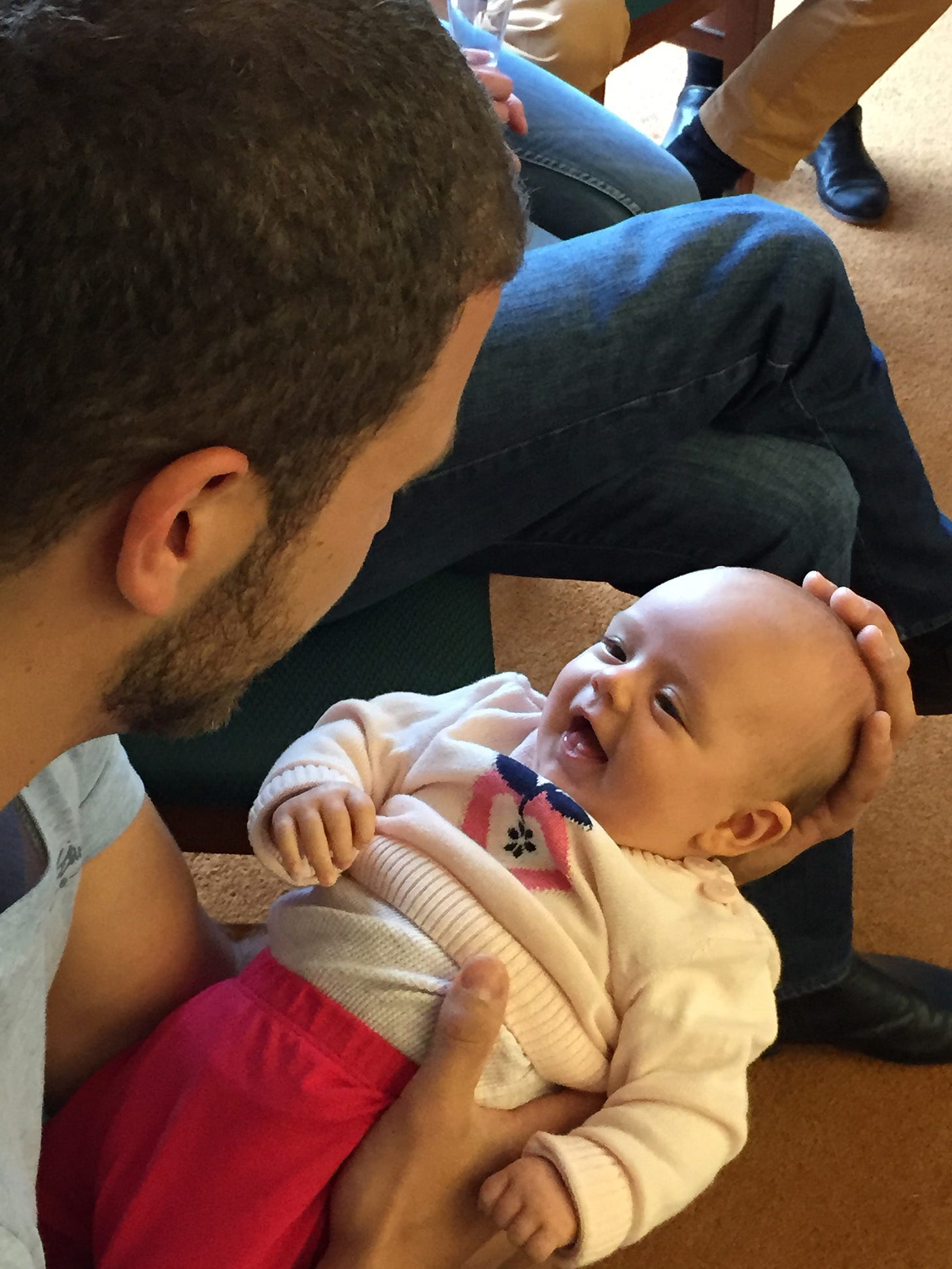Comparison doesn't have to be the thief of joy.
It can be a catalyst for positive change - when used correctly.

‘There are people who are worse off than you’ is a terrible way to try and alleviate the suffering of someone who is struggling.
‘There are people who have it worse than you, so you should be happy with what you’ve got’ is a clumsy and inelegant way to try and teach children to be happy with their circumstances at any point in time.
To teach a child to ‘be happy with what they’ve got, because other people have less’, is the same as teaching them to ‘be unhappy with what they’ve got, because other people have more’. It’s setting them up to fail, because as we know – there are always people with more. Even worse, in the current online age, there are always people who appear to have more.
Comparison shouldn’t be used as a blunt instrument for ranking difficulty or opportunity. It should be used to help hone understanding of context.
A/B comparison is for marketing campaigns and clickbait headlines, it’s not a tool for working out whether you should be happier and more satisfied, or sadder and consumed by feelings of inadequacy. Comparison is the thief of joy, but it is crucial in helping us learn, navigate and understand the infinite variety of the emotional world experienced by others.
Understanding context, the context in which you live and experience life, the context in which others live and experience life – the context in which people succeed or fail in certain endeavours and how they perceive success and failure, is becoming more and more important as we lead more insular, online lives.
There are circumstances which are objectively worse than others. But each person goes through life with their own unique collection of experiences and coping capacity. Everyone has a best moment, and everyone has a ‘worst’ or most challenging moment.
Now, is the ‘worst’ of some people, objectively less extreme than the ‘worst’ of others – I would say yes. But the worst thing that’s ever happened to you, is still the worst thing that’s ever happened to you.
Perceived suffering is suffering. No matter how trivial it may seem from the outside.
Likewise, the context that relieves the perception of suffering must come from inside the sufferer – not outside. They need to be able to place their feelings into a context of understanding that helps them recognise that the intensity of their feeling may be out of step with the reality of their challenges.
I remember holding my goddaughter when she was a tiny baby, watching her scrunch up her perfect little face, and pull up her legs in the reverse crunch position that indicates discomfort and an incoming eruption of gas or perhaps something more substantial. She got stuck for a moment, uncomfortable, uneasy, upset. She made some crying noises, there may have been a tear. A moment of discomfort, followed by the relaxing of the face, the settling of the legs, the release of the internal pressure that was causing the discomfort, and a return to peaceful rest in my arms. I remember thinking that in her short few weeks, that might have ranked among her very worst moments. She won’t remember, but apart from the shock of being born, the next most intense feelings for a child so loved and doted on, are hunger and gas.
I had a brief thought that maybe I wish she would never know difficulty more severe than just some tummy bloat, but then I caught myself and thought ‘I hope that she has all the support, love and tools to endure any and all challenges that come her way, no matter what they are. I hope that she gets tested in ways that help her build resilience and a strong, secure, principled sense of self, and that she is taken outside her comfort zone, but never to a place where she feels isolated, uncared for and lacking agency’.
We don’t want people to be untested, unchallenged. We don’t want an absence of struggle, sadness or difficulty.
We also don’t want people to be hammered into the ground by people and circumstances beyond their control.
Context.
I have spoken to rooms full of people who are stressed about money. They live in households that are in the top 1% of earners in a wealthy country, to pay for mortgages on houses that are often worth more than they owe. It’s stress, absolutely. They are conscious of interest rate rises, job insecurity, cost of living. They have less extra money than they have had at other times in their lives. They might ‘work hard’, and they might have inherited their position, by virtue of their family wealth, their education, good luck, the colour of their skin, or any other number of factors beyond their control. They are stressed, it’s true – and saying that there are people who have less, doesn’t change their stress levels. That kind of comparison is clumsy and ineffective.
But context, helps you place your stresses into a broader social relationship with the world.
Context helps you acknowledge not only what you don’t have, but what you do have. You are no longer struggling on 100% of the limited metrics you’re focusing on (money stress), but you’re feeling stress on 10% of the expanded metrics that context is giving you.
Context helps to understand that the financial stress that you are facing, is not the same as the single mother, who works a minimum wage part time job, has just had her rent jacked up 15%, has the rego due and a sick child that needs to see a GP and get medicine.
Context means you don’t say - ‘I’m stressed, but they’re worse off, so I shouldn’t be stressed.’
Context means you say – ‘I’m stressed, and they’re worse off – so I can only imagine how badly they must be going through it right now.’ We aren’t ranking to dismiss, we’re understanding so that we can better engage and support.
Realising what you have in comparison to others, can help manage your feelings of deficiency in comparison to your own expectations.
Context can help you regulate your emotional state. It gives your brain a chance to look outside of just how something feels – to why it might feel that way, or to look to surrounding circumstances in your own life and the lives of others, to lessen the intensity of feeling and create the mental space required to navigate it.
I have a friend who contextualises her frustrations in a really wonderful way. When something happens to upset her – a minor inconvenience, a challenge, a frustration – she resets her frustration by saying, ‘why does everything always happen to me?’. This tongue in cheek exclamation immediately takes the intensity of her feelings of frustration out of the situation. Obviously, everything doesn’t always happen to her. Putting the moment into context releases her of its overwhelming emotional response and allows her to contextualise the experience appropriately. The slow waiter is not the end of the world. Missing the green light is not the worst thing to ever happen. Everything doesn’t happen to you, you’ll get through this, don’t let it upset you unnecessarily.
For those with a social conscience and an action orientation, understanding context is what connects circumstances to positive community action. The context helps to prioritise what is important to do. Yeah, you’re still a bit stressed, but what is the most important thing to do next? Context helps you triage the next steps, and your focus.
Some people use comparison to create a context in which they are suffering the most in their estimation and avoid taking action to support others. Why help anyone else when you’ve got it the worst? Why help anyone else, when you can frame your life as having never received help –from either individuals, systems or circumstance? This is one way to avoid the human responsibility we have towards each other, and it’s a symptom of poor contextualisation.
Many people who are faced with myriad struggles, and the most significant challenges, find ways to advocate for, and look after other people. The depth and variety of their struggles and feelings give them a rich palette of experience through which to better empathise with the plight of others.
This may be why we find those with the least, are often the most generous.
Comparison for comparison’s sake, is not a useful exercise. Use understanding and empathy for the circumstance of others to help you find context for these experiences.
Use that understanding of context to help with your own intensity of feeling, and to help you orient your actions, and priorities. Comparison is inevitable, it’s present in social security, intersectionality, work, social media, hierarchies of all kinds, storytelling, and many of our life experiences. Rather than use it to justify our own mental state and our actions from a self-centred point of view, we should use it to develop context and a deeper understanding of the complex lives of others.
Use context to connect people to the support they need to navigate their particular circumstances. Work to understand where we can use our own existing support networks and coping capacity for ourselves, and where we can use it to look after others.
Everything doesn’t happen to you, some things do.
Every week I am frustrated by circumstances in my own life, personal frustrations, injustices and perceived failures, but each week I also have the privilege of working with people who are in far more challenging circumstances. Being involved in their lives and helping them – helps me place my own self-centred frustrations in context and takes the power away from them. My aspiration is not to simply alleviate my own discomfort, but to support people into lives where their worst difficulties look more like my minor inconveniences than the massive adversities they are currently facing.
Comparison is inevitable, turning it into something that creates better lives, rather than something that steals joy, is optional – and up to you.

